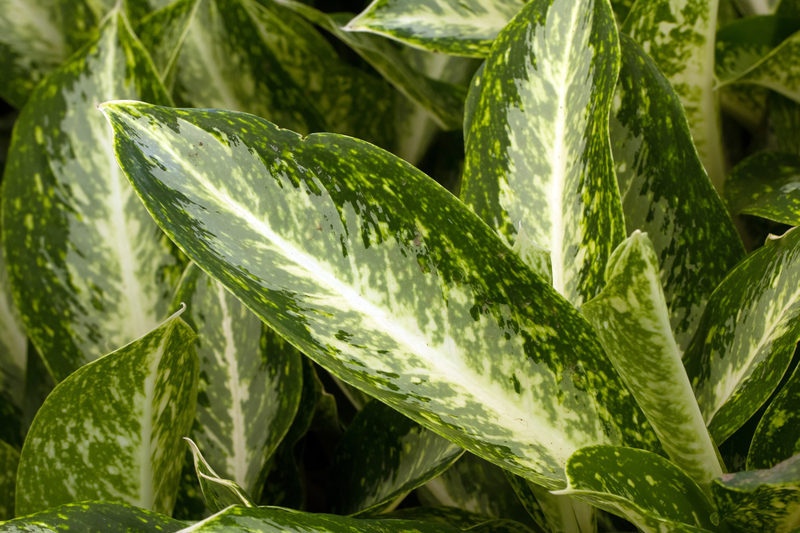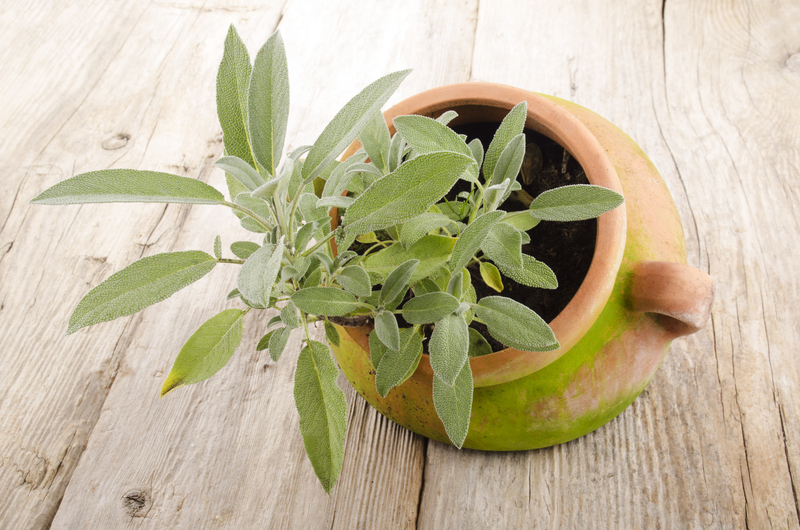Discover the joy of herb gardening: from seeds to savory dishes
Posted on 26/06/2025
Discover the Joy of Herb Gardening: From Seeds to Savory Dishes
Herb gardening is more than just a hobby--it is a journey that takes you from nurturing tiny seeds to enhancing your meals with exquisite, home-grown flavors. Whether you are a novice seeking a rewarding new pastime or an experienced gardener wishing to expand your green thumb repertoire, growing herbs brings a world of culinary and wellness benefits right to your doorstep.
The Magic of Herb Gardening at Home
The joy of herb gardening is an experience that offers beauty, aroma, and flavor--all in one. Imagine stepping outside or to your kitchen windowsill and plucking fresh basil for your pasta, mint for your tea, or thyme for a roast. Herb gardening not only connects you with nature but also transforms your cooking, fostering a deeper appreciation for ingredients.
Why Choose Herb Gardening?
- Year-round fresh flavors: Enjoy a constant supply of your favorite herbs, regardless of the season.
- Cost-effective: Growing herbs at home saves money compared to frequent store purchases.
- Healthier meals: Fresh herbs are packed with nutrients and antioxidants.
- Therapeutic benefits: Gardening alleviates stress and enhances mental well-being.
- Eco-friendly: Reduce your food miles and contribute to sustainable living.

Getting Started: Selecting Your Herb Garden Plants
Success begins with choosing the right herbs for your space, climate, and cuisine. Whether you're tending a container garden on a sunny balcony or cultivating an expansive raised bed, certain herbs are well-suited for beginners and offer versatile culinary uses.
Herbs Ideal for Beginners
- Basil: Perfect for Italian dishes, salads, and pesto.
- Mint: Refreshing in drinks, desserts, and sauces.
- Parsley: Adds color and flavor to nearly any meal.
- Rosemary: Pairs well with meats, potatoes, and bread.
- Thyme: Versatile for soups, stews, and roasts.
- Chives: Mild onion flavor ideal for eggs & salads.
- Cilantro (Coriander): Key in Mexican, Indian, and Asian cuisine.
- Dill: Essential for pickling, fish, and salads.
If you're short on space, focus on 3-5 favorite herbs and expand your collection each season.
From Seed to Sprout: Starting Your Herbal Garden
There's unparalleled satisfaction in growing herbs from seed to savory dishes. By doing so, you ensure that your plants are free from pesticides and additives, and you can witness every step of their journey to your table.
Steps for Successful Herb Seed Starting
- Obtain high-quality seeds: Purchase from reputable sources to guarantee strong germination.
- Prepare containers: Use seed trays, small pots, or recycled containers with drainage holes.
- Fill with potting mix: Choose a sterile, well-draining mix formulated for seedlings.
- Sow seeds appropriately: Follow package instructions for depth and spacing.
- Maintain moisture: Mist the surface regularly, but avoid waterlogging.
- Provide light: Place in a sunny window or use grow lights for 12-16 hours daily.
- Transplant carefully: When seedlings develop 2-3 true leaves, transplant them to larger pots or outdoors.
Be patient! Some herbs (like parsley) take longer to germinate, while others (such as basil) sprout within days.
Herb Gardening Essentials: Care, Maintenance, and Tips
Whether you grow herbs indoors or outdoors, some best practices will keep your garden thriving and productive. Successful herb gardening relies on meeting their unique needs.
Light and Temperature
*Most herbs need at least 6 hours of sunlight daily.* Indoors, a south-facing window or supplemental grow lights work best. Outdoors, select a spot protected from strong winds but with excellent sun exposure.
Soil and Fertilization
- Well-draining soil is key: Waterlogged roots lead to rot. Amend garden beds with compost or sand for improved drainage.
- Fertilizing: Use a balanced, organic fertilizer once a month during active growth. Over-fertilization can impact flavor.
Watering Wisdom
- Keep soil evenly moist, not soggy. Herbs prefer to dry slightly between waterings.
- Water at the base to avoid fungal issues on the leaves.
- Container herbs may need more frequent watering--check the soil daily in summer.
Pest Management
*A healthy, organic herb garden attracts fewer pests than conventional gardens. Still, keep watch for aphids, spider mites, or slugs.* Combat pests by picking them off, using insecticidal soap, or introducing beneficial insects, like ladybugs.
Pruning & Harvesting for Abundant Growth
- Pinch and snip regularly: This encourages bushier plants and prevents herbs from "bolting" (flowering and turning bitter).
- Harvest in the morning: This is when essential oils and flavors are at their peak.
- Don't overharvest: Leave at least one-third of each plant's foliage to ensure continued growth.
Creative Herb Gardening: Growing Herbs in Containers
No garden? No problem! Container herb gardening is the perfect solution for urban dwellers, apartment balconies, or even countertops. Small-space herb gardens can be just as prolific and beautiful as traditional beds.
Tips for Thriving Container Herb Gardens
- Choose the right container: Ensure pots are at least 6 inches deep with drainage holes.
- Mix and match: Grow compatible herbs together--such as basil, parsley, and chives.
- Rotate and reposition: Move pots to optimize sunlight and airflow.
- Get creative: Use hanging baskets, vertical planters, or window boxes.
Pro tip: Mediterranean herbs like rosemary, thyme, and oregano thrive in drier, well-drained containers, while basil and mint prefer more moisture.
From Garden to Pantry: Preserving and Storing Homegrown Herbs
With a bountiful herbal harvest, consider a variety of techniques to preserve their freshness and flavor year-round.
Drying Herbs
- Air-dry: Gather small bundles, tie with string, and hang upside down in a cool, dry place.
- Dehydrator or oven-dry: Spread leaves on trays and dry at low heat until crumbly.
Freezing Herbs
- Chop and freeze: Place chopped herbs in an ice cube tray, cover with water or olive oil, and freeze. Add cubes directly to dishes when cooking.
- Whole-leaf freeze: Wash and dry leaves, lay flat on a baking tray in the freezer, then transfer to a container or zipper bag.
Making Herb-Infused Oils & Vinegars
- Pack fresh, clean herbs in sterilized jars, cover with oil or vinegar, and steep for several weeks for homemade flavor infusions.
Properly preserved herbs retain their aromas and nutrients, letting you savor your homegrown harvest through every season.
Seasonal Flavors: Cooking with Fresh Herbs from Your Garden
The peak of herb gardening joy arrives when you bring those fresh-picked leaves and stems into your kitchen. Herbs immediately elevate the taste, fragrance, and appearance of your recipes.
Essential Tips for Cooking with Herbs
- Add delicate herbs late: Basil, parsley, and cilantro should be added at the end of cooking to preserve their bright flavors.
- Robust herbs love simmering: Rosemary, thyme, and oregano can handle longer cooking times.
- Start simple: Experiment with adding a single herb to staples--like scrambled eggs, roasted vegetables, or salad dressings.
- Infuse oils, butters, and sauces: Chop herbs and blend with olive oil or softened butter for flavorful spreads or marinades.
Favorite Homegrown Herb Recipes
- Mint Lemonade: Muddle fresh mint leaves with lemon juice and honey for a refreshing summer drink.
- Basil Pesto: Blend fresh basil, garlic, pine nuts, Parmesan, and olive oil for a classic Italian sauce.
- Rosemary Roasted Potatoes: Toss new potatoes with rosemary, olive oil, and sea salt before roasting.
- Herb Butter: Combine finely chopped parsley, thyme, chives, and softened butter for a versatile compound butter.
- Cilantro Salsa: Mix diced tomatoes, onion, lime juice, and loads of cilantro for the ultimate topping.
Try rotating seasonal herbs--such as chervil in spring, dill in summer, and sage in fall--to keep your meals exciting and nutritious.

Herb Gardening FAQ: Addressing Common Concerns
How much sunlight do herbs need?
Most culinary herbs thrive with 6-8 hours of direct sunlight daily. If you have limited natural light, invest in full-spectrum grow lights for robust indoor herb gardens.
Why are my herbs leggy or pale?
These are often signs of insufficient light. Move your plants closer to the window or provide supplemental lighting. Overcrowding or over-fertilizing may also cause weak growth.
My basil is flowering--what should I do?
Pinch off any flower buds as soon as you see them. Flowering signals the plant to stop leaf growth and focus on seed production, often resulting in a bitter flavor.
Is it better to grow herbs from seeds or seedlings?
Both are effective! Seeds are more economical, while seedlings offer a head start, particularly in short growing seasons or cooler climates.
Conclusion: Cultivating a Lifelong Love for Herb Gardening
The joy of herb gardening lies in its accessibility, sustainability, and endless rewards. Growing fresh herbs from seed enriches not just your kitchen but your home and your well-being. The daily ritual of tending to green shoots, harvesting your bounty, and savoring the results in your favorite dishes creates a unique connection to the earth and your food.
Whether you're just starting with a few pots on a sunny sill or curating a diverse backyard herb sanctuary, herb gardening is an invitation to discover new flavors, healthier living, and a more sustainable lifestyle. So, plant your seeds, nurture their growth, and transform every meal into a celebration of your garden's abundant gifts.
Ready to start your journey from seeds to savory dishes?
Embrace herb gardening today and experience the simple yet profound pleasure of fresh, homegrown flavor in every bite!
Latest Posts
Creating Cozy Garden Seating Areas for Outdoor Bliss
Starting a Garden Makeover: Tips for Neglected Spaces
Elevate your green thumb skills with container gardening
Hedge trimming: imaginative shapes and methods
Winter Plant Protection: Shielding Your Flora from the Frost

